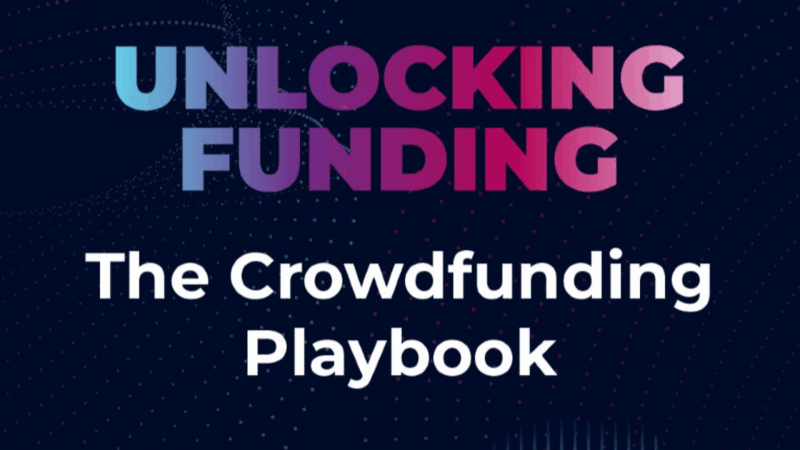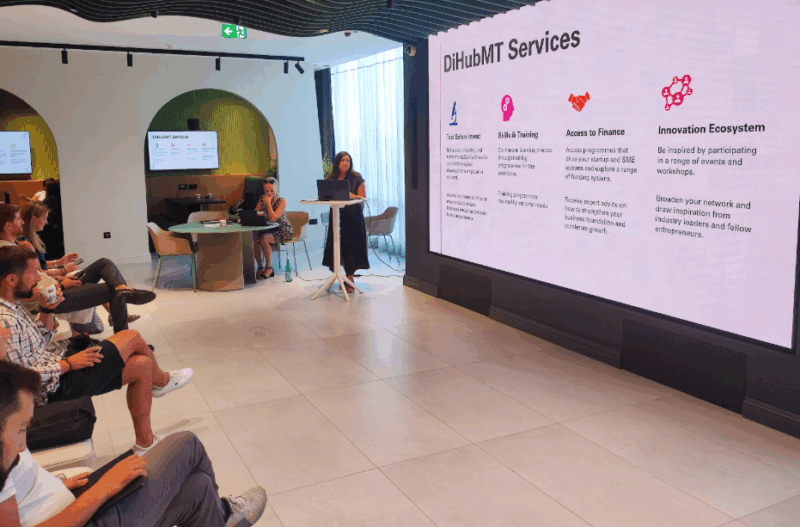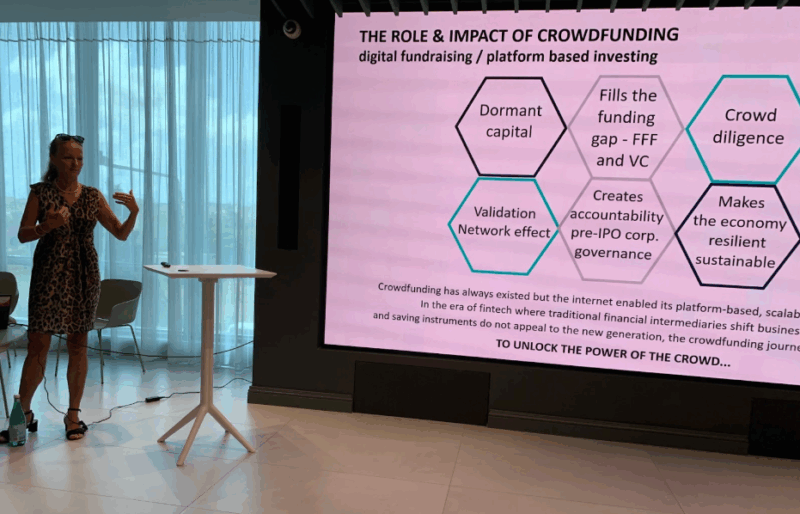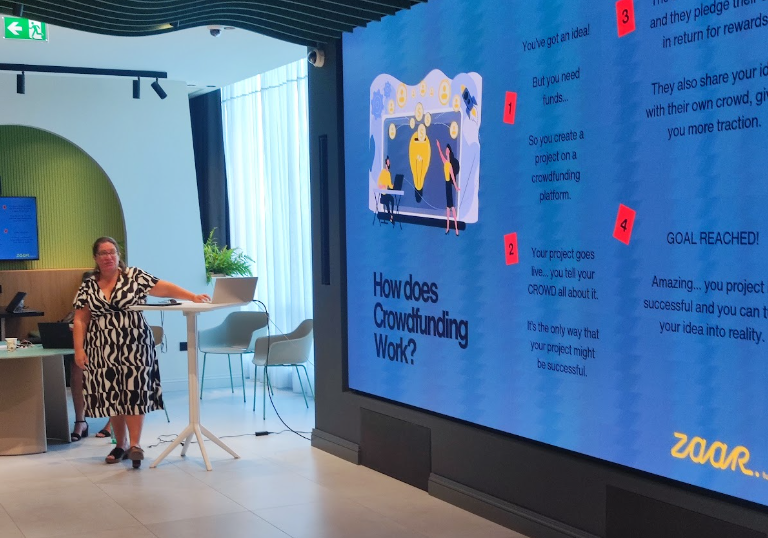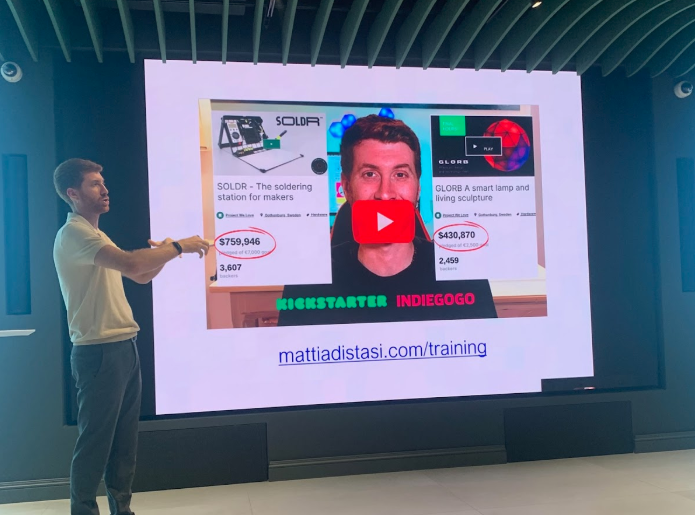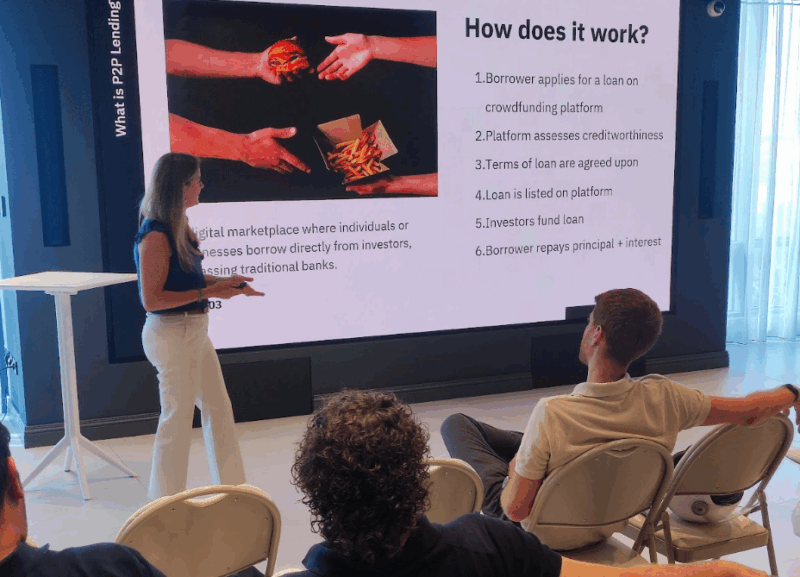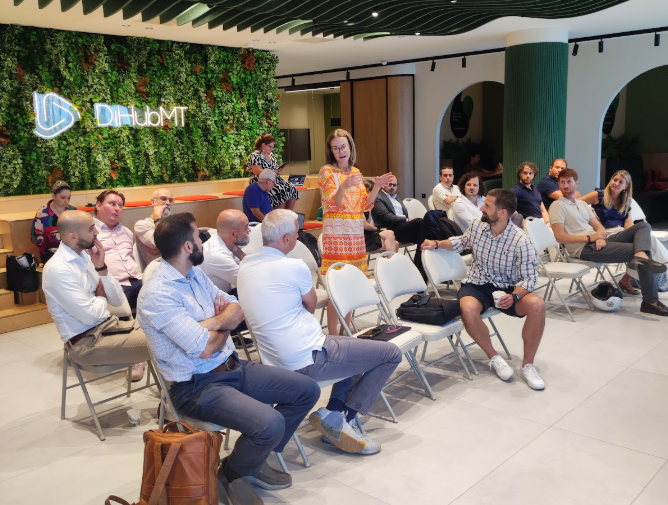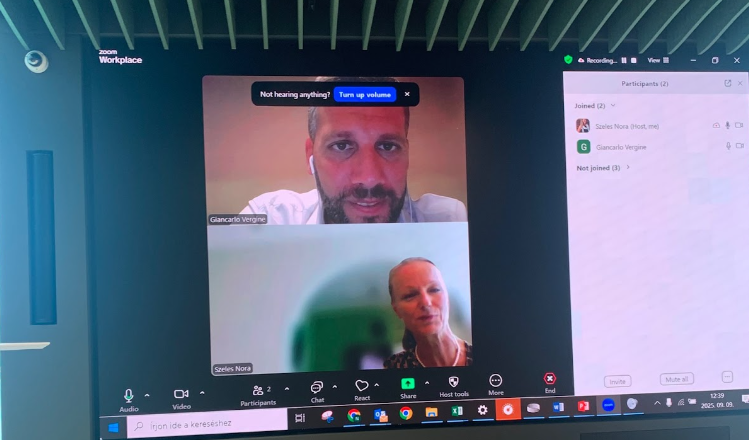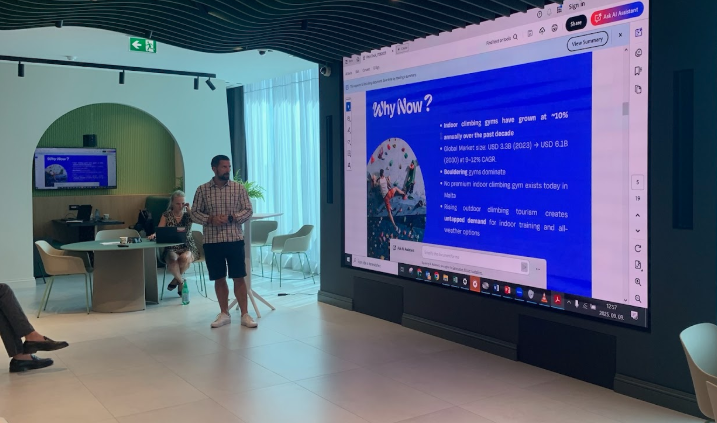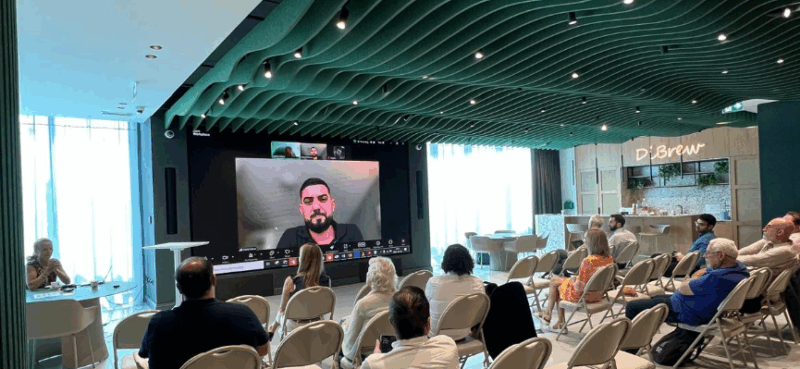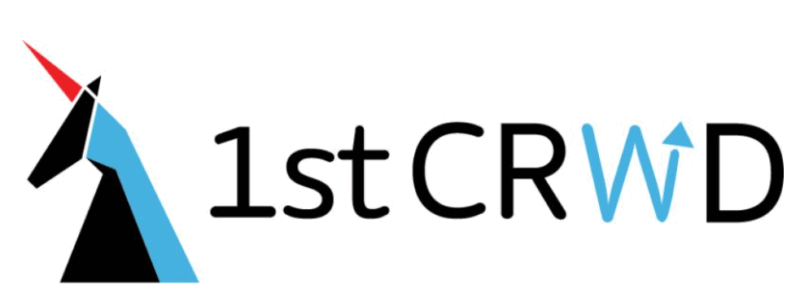Unlocking Funding: The Crowdfunding Playbook
2025.09.13 – TokePortal.com’s own content
Hosted at DiHUB Malta on 9 of September, the 1stCRWD workshop introduced the opportunities of crowdfunding as a route to finance and market growth to entrepreneurs, SMEs, and startups.
The event was kicked off with networking and coffee followed by opening remarks from manager of Entrepreneurship Service Development at DiHUB, Rachel Camilleri. Rachel discussed the role of DiHUB in supporting the Maltese startup ecosystem, offering facilities (IoT lab, 3D printing, design studio), alongside training, access to finance, and connections with EU and national programs.
Nora Szeles then discussed the ways crowdfunding has evolved, the regulations shaping it, and the benefits beyond just raising money. Nora explained the deep historical roots of crowdfunding, from fundraising for the statue of liberty, to the digital transformation it has become today. Crowdfunding became formally regulated only recently in 2021 in the U.S. through the JOBS Act and later in Europe through the ECSPR (effective 2022), making this an ideal moment to seize its opportunities. She also introduced the idea of “crowd diligence” — the power of a community’s collective evaluation. In addition to formal due diligence, public comments, reviews, and social media discussions can help identify risks, detect fraud, and shape a campaign’s success.
After mapping out the landscape, the content of the session shifted over to types of crowdfunding. Giselle Borg Olivier introduced Zaar, Malta’s first crowdfunding platform, and the fundamentals of reward- and donation-based crowdfunding. Donation campaigns work best for nonprofits and charities, where people contribute out of goodwill and may receive only small, symbolic rewards. In comparison, reward-based campaigns function like a pre-sale system, providing backers with tangible products or experiences in exchange for their pledges. Crowdfunding begins with an idea, but success depends on action: choosing the right platform, presenting the project clearly, and engaging the public. Giselle shared essential tips for crowdfunding success, and reminded participants that if a campaign doesn’t succeed, it’s crucial to analyze what went wrong, learn from it, and try again—because at the heart of every campaign, without a crowd, there is no funding.
Crowdfunding and Kickstarter expert Mattia Di Stasi expanded on crowdfunding, drawing on his experience raising over $4.6 million across 50 campaigns. He highlighted the importance of organized and structured preparation along with a strong pre-launch strategy, pointing out the need to choose platforms that best match the target audience, build an engaged community, and approach campaigns with a sales mindset. He advised founders to understand their product and market category thoroughly and to study successful campaigns in the same space before deciding which type to launch.
Nicky Busuttil explained how crowdfunding works and how it can shift the mindset of both investors and businesses, encouraging them to view finance in more inclusive and innovative ways. A lot of preparation is necessary, along with communication. Rewards are important, even small ones, because investors value tangible connections to the project. Know your target audience, prepare your social media presence, and leverage a wider network of contacts, mentors, and events to build momentum and credibility before launch.
dr. Kyle Debattista talked about Malta’s regulatory framework, explaining that the island is an attractive jurisdiction for startups because of its EU membership, Eurozone currency-no restrictions on currency exchange, single regulator (MFSA), fast company-setup process, supportive government schemes, and bilingual legal system. Malta was an early adopter of crowdfunding rules (2018) and now applies the EU Crowdfunding Service Providers Regulation, which harmonises lending- and investment-based campaigns up to €5 million, and introduces investor safeguards. Startups can incorporate as private limited companies or public limited companies (PLCs). Crowdfunding offers a cost-effective route for Maltese or foreign startups to raise capital, backed by a clear EU-aligned legal framework.
Giancarlo Vergine, founder of OverVentures, shared lessons from supporting 200+ equity crowdfunding campaigns that raised over €100M. He emphasized that crowdfunding builds community, validates ideas, and turns stakeholders into ambassadors. Key takeaways include crafting a clear narrative, setting realistic valuations, building pre-launch momentum, maintaining compliance, engaging investors, and nurturing long-term relationships post-funding. Crowdfunding should be treated as a strategic journey rather than a one-time funding tool.
one of TokePortal.com’s recent campaigns, Balazs Borok, founder of a new indoor bouldering gym, CrashPad was also present at the event; he explained how their venue will serve Malta’s small but growing climbing community, with dedicated kids’ areas, coaching, events, and wellness services. Their facility offers a community and space where climbers can grow, leveraging Malta’s attractive possibilities. The facility features competition-grade walls, enabling it to host international events—something no other climbing center in the area can offer As climbing continues to grow in popularity, they see a promising and untapped market opportunity.
David Musu, a seasoned crowdfunding expert with nearly a decade of experience and over 100 successful campaigns, shared valuable insight on launching a successful campaign. Success depends on adequate preparation and realistic expectations. His advice to the participants is to build a community before launch, set realistic goals, and a strong pitch deck. The first thing you need, is for people to believe in your vision and the pitch is secondary for supplying individuals with information so they can make informed decisions. Your pitch should ultimately cover three main points: why does your business matter, why is now the time to act, and perhaps the most important is why are you the right person for this. You need to show you have the grits and determination, willing to adapt, learn, and leverage your community.Embrace your ‘goofy’ side—investors back founders, not just numbers, so showing authenticity can make a big impact.
Ivaylo Ivanov, tech entrepreneur and Founder Institute lead for Central and Eastern Europe, shared his journey, highlighting successes, failures, and lessons learned. He explained the Founder Institute’s 15-week, hands-on accelerator, emphasizing a structured curriculum, cohort collaboration, and mentorship from a network of 35,000 experts. He illustrated real results using the BuddyGuard campaign on TokePortal.com, reinforcing the value of learning from mistakes and leveraging mentorship.
The 1stCRWD is the first-ever European Crowdfunding Incubator in Malta, offering hybrid programs, workshops, and demo days. The main objective of the incubator is to build investable ventures, easy to understand from an investor point of view. Graduates will be able to receive an investability certificate. Most costs are covered; with a small fee to ensure commitment. The goal of 1stCRWD is to help startups successfully launch crowdfunding campaigns with guidance from experienced mentors. With the help of TokePortal.com as a route to finance via crowdfunding, 1stCRWD offers a unique value proposition and prepares founders for success.
Towards the end of the workshop, participants received 1:1 mentoring and key insights with mentors, ending with a spontaneous pitch session. Tatu Luuk, founder of Organic Steel from Finland, (you might have also seen them at our other DiHub event, Pitch&Go—check out the full stream here!), introduced his company where they are developing carbon-negative materials using hemp and other composites, aiming to reduce the environmental impact of traditional steel, which contributes over 50% of global CO₂ emissions.
Other interesting pitches include: Route Drink, a rehydration and energy beverage validated by human studies, a Marina guest house, seeking €150,000 for regulatory costs with strong revenue potential, and an AI-powered receipt processing app, targeting individuals and accounting firms.
Mentors emphasized pre-registration, campaign setup, KYC and AML compliance, and the importance of social media engagement. Launch costs range from €2,000–3,000 for campaigns up to €500,000–1M, with a ~6.5% success fee. Agile campaign management, continuous mentor communication, and refining strategies based on crowd response were also highlighted.
Whether launching innovative materials, niche consumer products, real estate, or tech apps, founders were encouraged to demonstrate traction, leverage social proof, and focus on tangible benefits, while always practicing and refining their pitch to investors. The participants were actively engaged, playing a key role in shaping the core of the workshop.
A huge shoutout to DiHubMT for helping turn this workshop into such a memorable experience for everyone! Big thanks as well to all the speakers, guests, and participants who made the day so inspiring and full of energy.
You missed the workshop? Don’t worry! Be prepared to join us in Malta for the first bootcamp in the last week of October!


